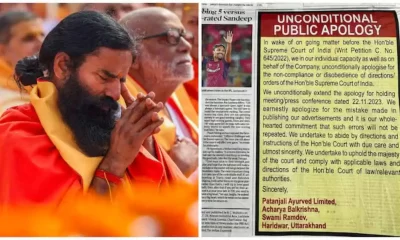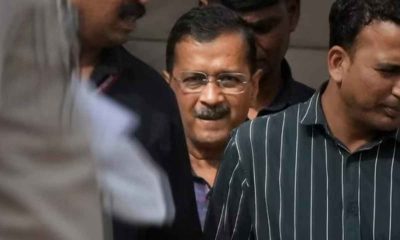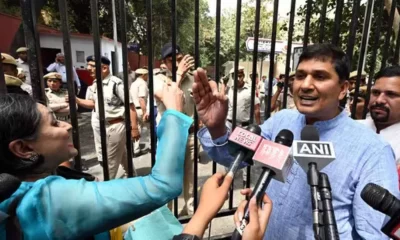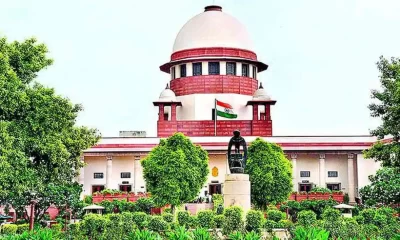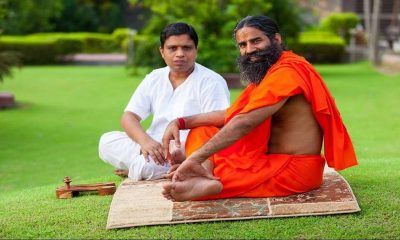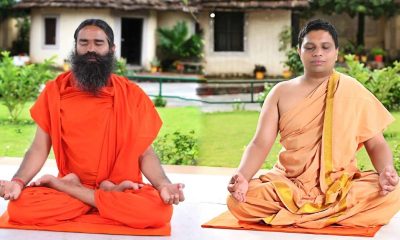India News
Aadhaar linkages matter: This act will make the real person worthless, only the virtual person will prevail, says Gopal Subramanium
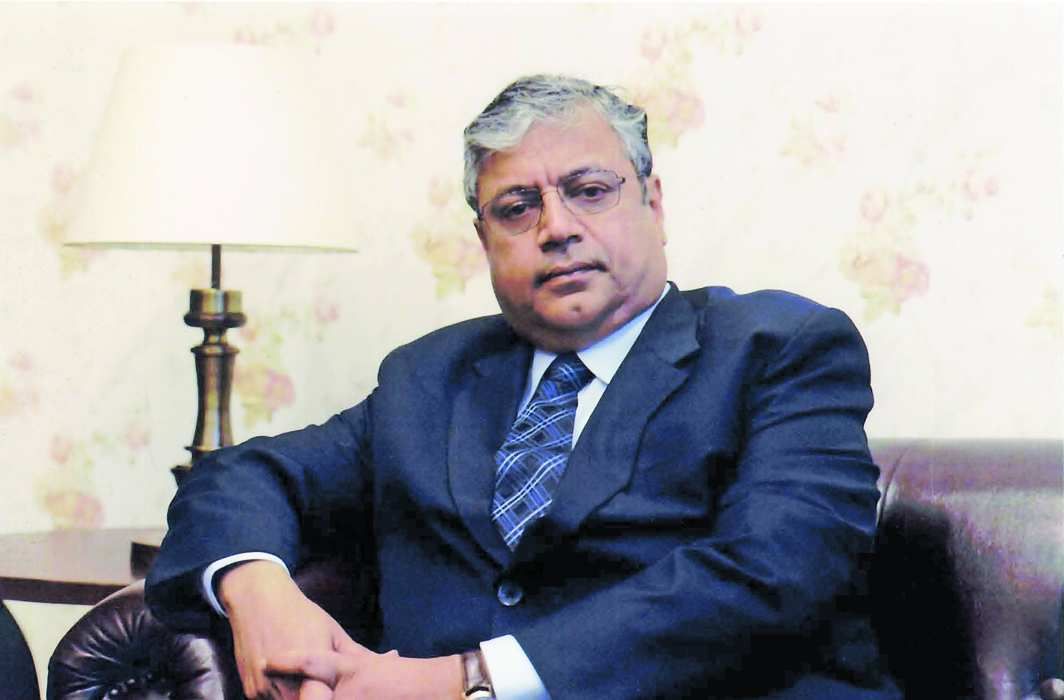
Above: Gopal Subramanium
The hearings on Aadhaar and its various linkages and privacy and security issued attached to them continued before the Supreme Court constitution bench of Chief Justice Dipak Misra and Justices A K Sikri, A M Khanwilkar, D Y Chandrachud and Ashok Bhushan on Tuesday (February 13).
The following deliberations took place with senior counsel Kapil Sibal carrying on from where he broke off:
He talked about identity taken by face, iris and fingerprints. He also submitted about foreign situations where the government took all the information only for ten years. He said that “after the 10 years all databases will be deleted and recreated. That is what happens in the most secure countries in the world.”
He pointed out: “Even if you want to access the database, it will only be for limited things. The problems which are created by Aadhaar will be suffered by out our children, grandchildren and the children who are yet to be born.
“We all know that how much national security is important for us. And this government is trying to put it in danger,” he said. He then read retired Judge Puttaswamy’s arguments, on whose petition this case has come up. He submitted that the compilations of Trip Advisor, Alibaba, Uber, and some other websites showed the business reviews which were affected by Aadhaar.
Same he said of Facebook and WhatsApp which it acquired for $19 billion.
Sibal recited Right to Privacy judgment and laid down two points:
- My identity cannot be made a public identity
- My identity is not centralized
He said: “We are challenging the architecture of the act. On the one hand we have public interest and on the other we have national security.”
Involved are “personal information, medical information, personal identity,” he said. “Our fundamental identity is that we are citizens of India. How can this be decided only on the basis of Aadhaar? Our passports, medical facilities etc. can be rejected? The state cannot choose how to prove our citizenship.”
He further referred to Sections 3,4,8 of the Aadhaar Act. Like argued before, Sibal also insisted that authentication is the key in the use of the Aadhaar number. “Meta data is not defined under the Aadhaar Act,” he said. “Section 57 was not needed. The proviso of Section 57 says subject to authentication. In short, for almost every purpose you will need authentication. And the concept of consent is illusionary. Identity can be established only by way of authentication. Such power is infringement of Article 19(1),20.”
He further stated: “Through Aadhaar the state seeks transparency of the individual. So the purpose of the RTI Act is violated. The proportionality argument is that you are presumed to be a criminal until you are proved innocent.
“There should not be the least restrictive opportunity to achieve the object. Hence proof of identity through Aadhaar is most restrictive way, hence violative of the principle of proportionality,” the senior counsel argued.
“If Aadhaar is made mandatory wide powers will be given to the state in respect to when and where an individual will choose to travel, open an account, live, go etc. If someone’s account is deactivated because of any reason then an individual will not be able to even operate his account. So how is it justified without there being any alternative relief available to such persons?
“The Act says that all the expenditure should be from a consolidated fund, but it does not make clear which consolidated fund it is from, India or state?” he argued.
“The right to receive entitlement is also one point to be considered,” he said. “Entitlement is one’s status. So in case of our status we don’t need Aadhaar to claim our right? Certain entitlements are available to non citizens also. No service can be denied, especially to those who are below the poverty line.
“This statute impacts our fundamental right i.e. right to livelihood. That is why the test is far more stringent,” Sibal said. Proof of identification is a statutory restriction.
He said the infrastructure of this country doesn’t allow Aadhaar. “There is no public wi-fi. Many people don’t know how to use the internet and other facilities,” he said. He brought up the case of the Kerala Education Trust which supports his arguments related to use of Aadhaar in educational areas.
He also said that fingerprints and the iris are continuously changing when a child is growing. So during the in-between years Aadhaar is of no use.
Justice Chandrachud said that “an unconstitutional condition is when one person is surrendering the rights of his personal things or identity. The government is chosen by the public at large.”
Sibal said that the entitlement is made on the person who is a citizen of this country. “I don’t have any issue with Aadhaar, but lack of infrastructure is the biggest problem and taking all personal identity is the problem. You can give it in the name of Social Security Card, but on the name of Aadhaar, it is not good.”
Justice Chandrachud asked where the doctrine of Unconstitutional conditions really lies in this. Does it ask to relinquish the condition which is created?”
The judge said: “There are some people in this country who don’t have any identity. When the government is giving one identity for all things, then what is the issue?”
Sibal said that this is given in the act. That is the social purpose of this. He referred to the act and said the answer is in the act. He said “you must have some identification cards for making Aadhaar. Hence the intention of Aadhaar is not for those people who don’t have any identity card.”
As to the distance things have been taken with Aadhaar, Sibal said: “I cannot book a railway ticket if I don’t have Aadhaar. The point is, my identity refers to me. If I show my identity it must show that I am Mr Sibal. Identity is the thing which proves that I am who I am.”
He then referred to the writ petition 841/2017 which is related to the state of West Bengal. Page 114 of the petition refers to the services rendered via Aadhaar.
He said that the government is issuing notifications from time to time. On November 17, they have issued a notification in which school attendance came on this list. He referred to the Minarva Mills case.
Sibal said: “I gave all these things to create a picture which shows that it hasn’t any constitutional validity.”
“Perhaps this is the more important case, because of the imposition,” Sibal said. The ADM Jabalpur case came before this court and this case will be remembered by me, my children and grandchildren. Now you are going to create a future. This judgment will affect many people. These are the elements your lordships have to keep in mind.
Gopal Subramanium
Senior counsel Gopal Subramanium then took up his stand. He said: “This matter is related to a sequel of saving our rights. When the Right to Privacy came before this court, the question arose. Today, we are looking at what is called a living constitution. When we see this, then we have to decide, is it fundamental or not?
“I am willing to say that the technology is getting vast. He said. “First we have to see what is the real purpose of this act. This act is a danger. It is no longer a state when it allows these type of things in a democratic society. When the identification and authentication lies with government then there is no use of a real person. Then the name is not the name, it will just be a number. And the virtual person will rule.”
The matter will again be heard on February 15.
2024 Lok Sabha Elections
Priyanka Gandhi accuses BJP of planning to change the Constitution, criticises PM Modi for inflation
Priyanka Gandhi was speaking at an election rally at Dharampur village of tribal dominated Valsad district held in support of Congress candidate for ST-reserved Valsad Lok Sabha seat, Anant Patel.
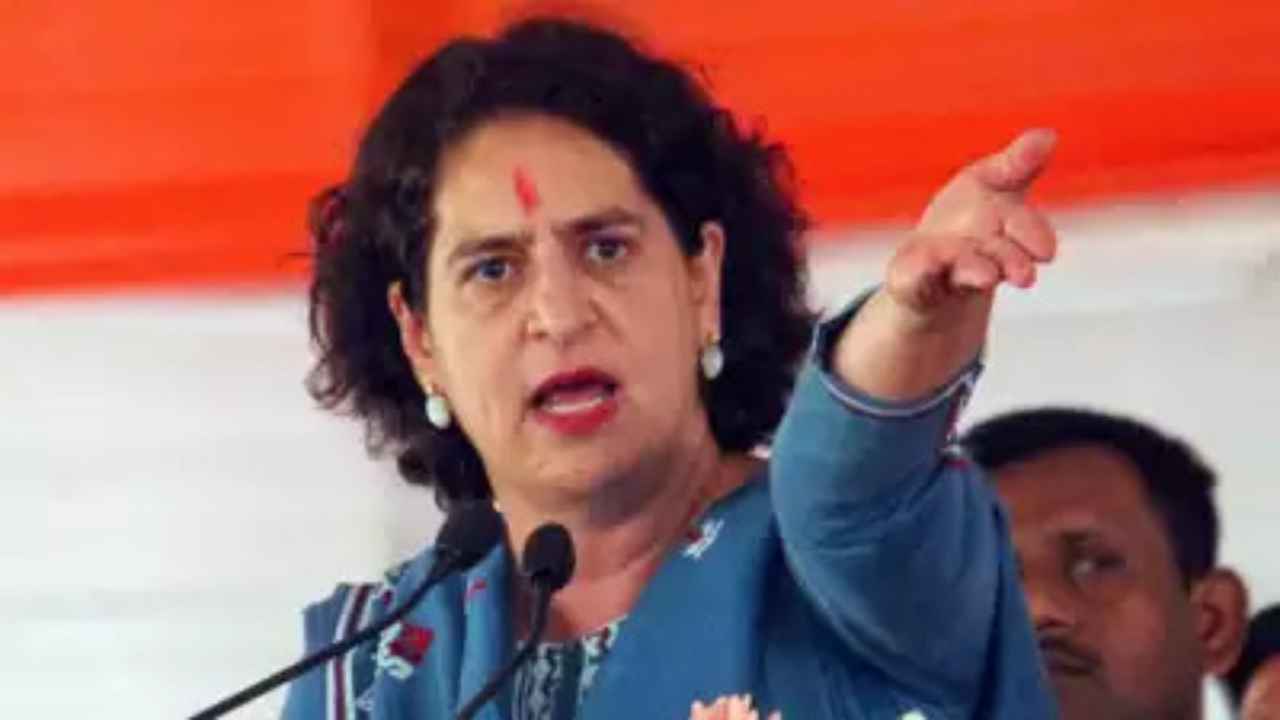
Congress leader Priyanka Gandhi on Saturday said the BJP may be denying it now, but the party will change the Constitution if it returns to power. She targeted Prime Minister Narendra Modi over inflation and called him the mehengai man.
Gandhi said the BJP leaders and candidates are saying that they will change the constitution. She said PM Modi is denying it. She added this is BJP’s tactic. Priyanka Gandhi was speaking at an election rally at Dharampur village of tribal dominated Valsad district held in support of Congress candidate for ST-reserved Valsad Lok Sabha seat, Anant Patel.
Gandhi said first the BJP will deny what they want to do. But after coming to power they will implement it. She further added The BJP wants to change the constitution to weaken the common people and deprive them of their rights given in the Constitution. She said the BJP leaders project the prime minister as powerful and say that chutki bajake ladai rukwa dete hai (he can stop the Russia- Ukraine war with the snap of his fingers). She asked why is prime minister unable to remove poverty just like that?
Priyanka Gandhi claimed the tribal population in Gujarat which is Modi’s home state and the whole country is suffering from issues like rising inflation, unemployment, low remumberation, loss of land, violence against women and other atrocities. She highlighted the Congress manifesto ans said it addresses issues faced by the traibal population.
She assured the people that the Congress will bring schemes like MGNREGA like schemes for urban areas where families will get 100 days of guaranteed work. She said the Congress is committed to filing about 30 lakh vacancies in government jobs, providing subsidized diesel to fishermen and take the minimum wage to Rs 400. Gandhi said the Congress is going to work out sub plans for Scheduled Tribes and scheduled castes.
2024 Lok Sabha Elections
Smriti Irani takes a swipe at Rahul Gandhi for calling Amethi his home but contesting Lok Sabha elections from Wayanad
Smriti Irani criticised the Rahul Gandhi for changing his families and said they have seen people changing colours, but for the first time changing families is being witnessed.
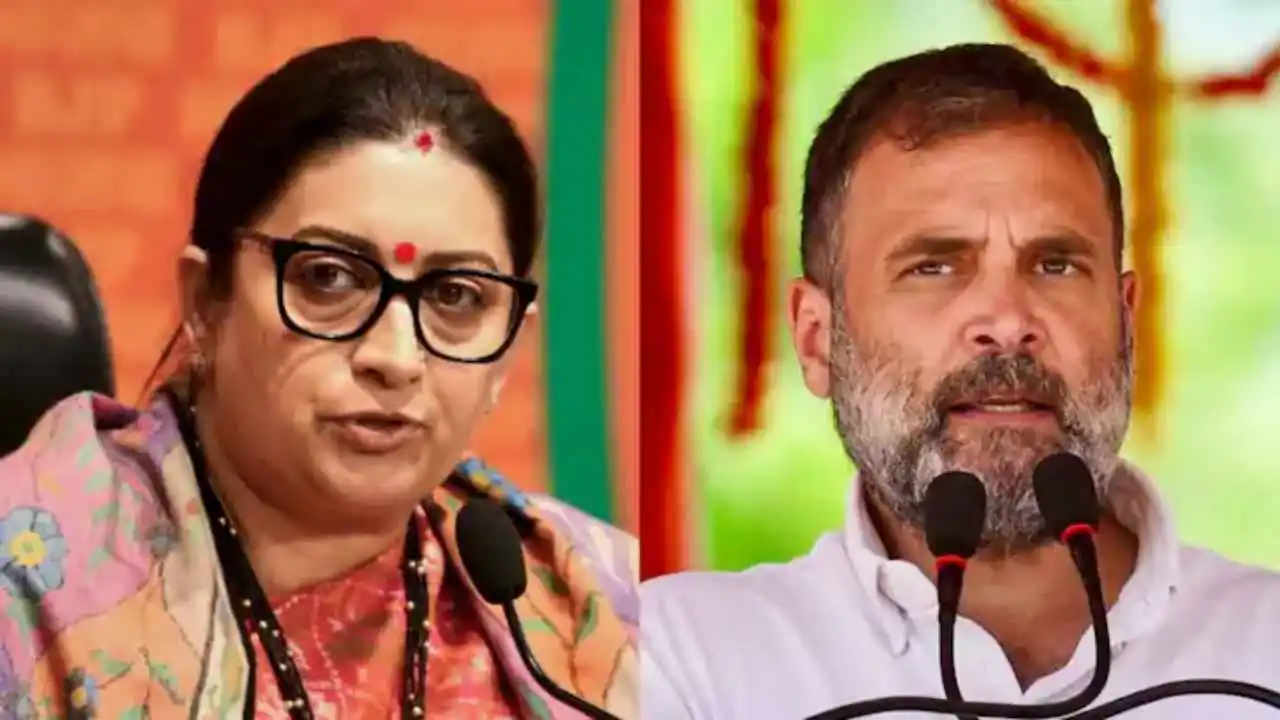
Union Minister Smriti Irani took a swipe at Rahul Gandhi on Saturday during a rally in Uttar Pradesh’s Amethi. While addressing the public rally, Irani said Rahul Gandhi spoke about his relations in Amethi and then he went to Wayanad where he declared the Kerala seat as his home as he filed for his nomination for the Lok Sabha elections.
Smriti Irani, who will be contesting her Amethi seat yet again, criticised the Rahul Gandhi for changing his families and said they have seen people changing colours, but for the first time changing families is being witnessed. The Union minister urged the people of Amethi to cast their votes on May 20, the day when Amethi goes for elections. She talked about the benefits of voting for BJP and said, the poor will get free ration for five years, farmers will get Rs 6,000 every month, and will get Rs 5 lakh every year under the Ayushman Bharat scheme.
Irani further added that Congress on the other hand has declared that it will calculate the wealth of the people if voted to power. She took a swipe over Congress candidates and said the grand old party is yet to announce its candidates for two key constituencies in Uttar Pradesh – Amethi and Raebareli, which have historically been the Congress’s stronghold. The BJP leader said that now that the polling in Wayanad has concluded, the Congress candidate will arrive in Amethi, but will first visit the Ram Temple.
She slammed Congress for rejecting the invitation to the Ram Temple Pran Pratishtha and said they rejected the invitation to the Ram temple Pran Pratishtha, now they will go to the Ram temple as they believe that this will get them votes in the ongoing Lok Sabha elections which means now they will go to the extent of betraying god as well.
2024 Lok Sabha Elections
Lok Sabha election 2024: Nearly 50% voter turnout recorded in second phase till 3 pm
The constituencies going to polls today include all 20 Lok Sabha seats in Kerala, 14 in Karnataka, 13 in Rajasthan, and others spread across different states.
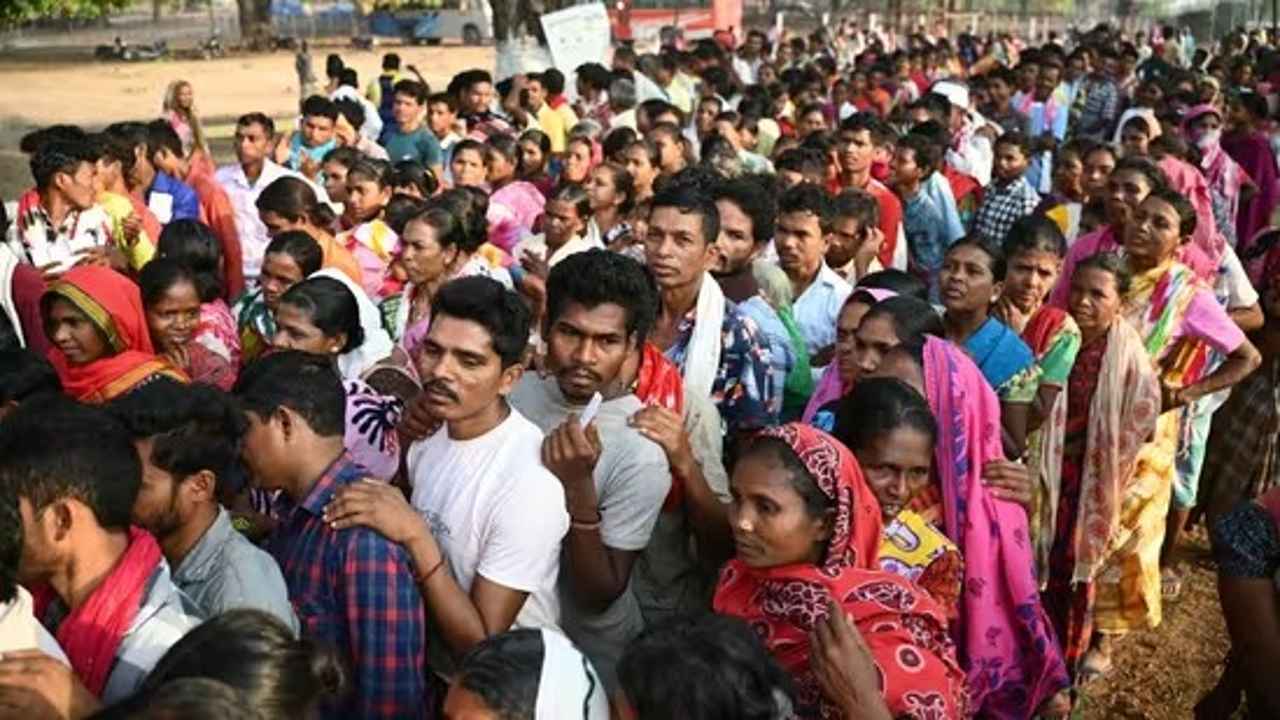
In the second phase of Lok Sabha elections 2024, over 50% of voters were registered in 13 states and the UTs till 3 p.m. 65% of voters participated in the first round of the Lok Sabha elections.
The 18th Lok Sabha elections are currently in their second phase, with voting for 88 seats taking place across 13 states and union territories. There are more than 1,200 people running for office, four of them are from outside Manipur.
Union minister Rajeev Chandrasekhar, BJP members Tejasvi Surya, Hema Malini, and Arun Govil, Rahul Gandhi and Congress leader Shashi Tharoor, DK Suresh, the brother of Karnataka Deputy Chief Minister DK Shivakumar, and former chief minister HD Kumaraswamy are among the notable contenders for the second phase.
In 2019, the NDA had won 56 of the 89 seats and the UPA 24. Six of these seats have been redrawn as part of the delimitation exercise.
The first phase of the seven stages of the elections took place on Friday, including 102 seats spread across 21 states and Union territories. Voter turnout was about 65.5% in the first phase, according to the reports.
In biggest festival of democracy, people from all walks of sector took part in it. A video went viral where former India captain and current Indian team head coach Rahul Dravid and former India player and head coach Anil Kumble were seen standing in line to cast their vote.
Meanwhile, voting started at 7 a.m. and will end at 6 p.m. The Election Commission has extended voting hours for those who are in line by an hour. According to Election Commission figures, the first two hours saw a 9.3% voter turnout throughout the 88 constituencies. By 9 am, Kerala had recorded 8.52%, Karnataka 9.21%, and Madhya Pradesh 13.82%.
In this phase, there were about 15.88 crore eligible voters, comprising 5.929 third-gender electors, 8.08 crore males, and 7.8 crore women. 3.28 crore young voters, aged 20 to 29, are among them; 34.8 lakh of them are first-time voters.
-
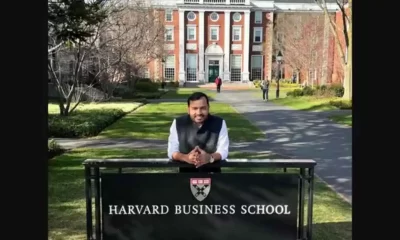
 Education2 hours ago
Education2 hours agoPhysics Wallah founder gets invited as speaker to Harvard, Stanford Universities, post goes viral
-
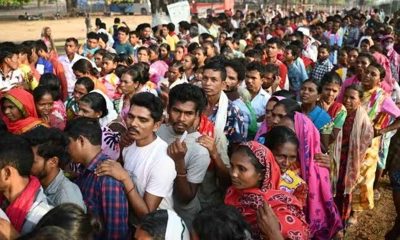
 2024 Lok Sabha Elections24 hours ago
2024 Lok Sabha Elections24 hours agoLok Sabha election 2024: Nearly 50% voter turnout recorded in second phase till 3 pm
-
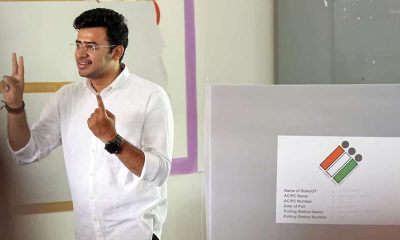
 2024 Lok Sabha Elections22 hours ago
2024 Lok Sabha Elections22 hours agoElection Commission books BJP MP Tejasvi Surya for seeking votes in the name of religion
-

 Cricket news5 hours ago
Cricket news5 hours agoIPL 2024: Punjab Kings beat Kolkata Knight Riders by 8 wickets to chase down highest T20 total
-

 2024 Lok Sabha Elections3 hours ago
2024 Lok Sabha Elections3 hours agoSmriti Irani takes a swipe at Rahul Gandhi for calling Amethi his home but contesting Lok Sabha elections from Wayanad
-

 2024 Lok Sabha Elections1 min ago
2024 Lok Sabha Elections1 min agoPriyanka Gandhi accuses BJP of planning to change the Constitution, criticises PM Modi for inflation

